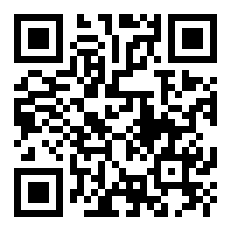Partnership in indigenous language documentation and advocacy: Experience from the Abureni Language Project
Keywords:
Indigenous language, partnership, stakeholder-involvement, native speakers, language documentationAbstract
Members of speech communities thrive to ensure that their indigenous languages and cultures are preserved through various means and methods. The expectations over the linguistic categories in terms of content and quality, demand on cost-time-resources, spread of front-end input and acceptability of deliverables by native speakers themselves, are critical factors that influence the successful delivery of an indigenous language project. The above concerns are significant and become overwhelming, especially for small-groups and endangered languages with little or no previous scientifically based linguistic research publications such as Abureni in Nigeria. On one hand the objective of documenting the aspects of indigenous languages is to preserve their cultural heritage and identity as a people. On another hand, native people have ventured into the documentation and advocacy of their languages so as not to be left behind in the current wave of globalization that impacts all facets of human life. This paper utilizes Grice's theories of conversation and meaning and seeks to highlight the place of partnership and stakeholder involvement in achieving success in indigenous language documentation and advocacy. The authors adopt the functional framework to analyze the tasks, processes, deliverables, challenges, and learnings so far recorded in the Abureni Language project from a participatory perspective. The paper concludes that partnership with both internal and external stakeholders and a sustained involvement from them are enablers in delivering an indigenous language documentation and advocacy project.
References
Britannica, T. Editors of Encyclopedia (1998). Functionalism. Encyclopedia Britannica. https://www.britannica.com/science/functionalism- linguistics. Accessed 13th April 2021.
Clark, H. H. (2004). Pragmatics of Language Performance. In L. R. Horn & G. Ward (Eds.). Handbook of pragmatics. Oxford: Blackwell, pp. 365- 382. Clark.Pragmatics.04.pdf (stanford.edu). Accessed 12th April 2021.
Czaykowska-Higgins, E. (2009). Research Models, Community Engagement, and Linguistic Fieldwork: Reflections on Working within Canadian Indigenous Communities. https://scholarspace.manoa.hawaii.edu/bitstream/10125/4423/czaykowskahiggins.p df. Accessed 13th April 2021.
Dakom, Y. J. (2018). Modern Teaching and Learning of Literature in Schools: A Tool for Conflict Resolution in Schools. In Adéníyì, H; Ken- Maduako, I &IyallaAmadi, P. (Eds 2018). Trends in African Languages Development: Festschrift for Ismail Junaidu. Lagos: The Linguistic Association of Nigeria.
Daniel, C. E. (2017). A History of Iduma from Ancient Times. Port Harcourt: Onyoma esearch Publications.
Eberhard, D. M.; Simmons, G. F.; and Fennig, Charles, D. F. (Eds.). (2021). Languages of the World. Ethnologue: Languages of the World. Twenty-fourth edition. Dallas, Texas: SIL International. Online version: http://www.ethnologue.com. Accessed 18th April 2021.
Ebua, V. T. (2017). My Mother Tongue: Onu Ema Obagbony – Kugbo for Primary and Secondary Schools Book II. Yenagoa: Last Messenger Publication.
Edoghotu, A. J; George, U. U.; & Hart, A. I. (2016). The Ichthiofauna and PhysicoChemical Properties of Kugbo Creek in The Niger Delta, igeria. New York Science Journal 2016; 9(4). http://www.sciencepub.net/newyork. Accessed 27th June 2017.
Etire, D. (2015). The Orthography of The Abureni Language. Port Harcourtː Onyoma Publications.
Etire, D.; Paul, E. R. (2018). Reading and Writing in The Abureni Language. Paper presented at the Abureni Evangelical Outreach, 2018 Crusade & Seminars, 22nd -26th December at Okoroba Town, Bayelsa State, Nigeria. pp.9-10. (unpublished).
Etire, R. T. (1998). Christianity in Emago-Kugbo. Port Harcourt: Bethel’s Publication.
Faraclas, N. G. (1989). “Cross River”. In: Bendor-Samuel, John and Hartell, Rhonda L. (Eds.). 1989. The Niger-Congo Languages. New York: University Press of America. pp.379-381,
Google Earth. (2021). “Abureni Boundary Communities” Google Earth December 30, 2019 and April 17, 2021).
Government of Rivers State of Nigeria. (2006). A Law to provide for the teaching of Indigenous languages in schools in Rivers State. No. 4 2003. In Official Gazette Rivers State of Nigeria. Rivers State Education Teaching of Indigenous Languages Law: No. 2 Vol. 38. Port Harcourt: Government Printing Press.
Himmelmann, N. P. 2006. Language documentation: What is it and what is it good for? http://elldo.amu.edu.pl/wp- content/uploads/2016/10/himmelmann2006.pdf. essentials-of-language-documentation (amu.edu.pl). Accessed 11th April 2021.
Jobes, K. H. (2007). Relevance Theory and the Translation of Scripture. In Journal of the Evangelical Theological Society. JETS 50/4 (December 2007) 773–97. 00-Text_JETS50-4 (etsjets.org). Accessed 12th April 2021.
Joshua Project. (2021). Abureni. https://joshuaproject.net/people_groups/13728/NI. Accessed 24th May 2021
Kroega, P. (2020). Grice’s Maxims of Conversation. (2020, August 12). Retrieved April 12, 2021, from https://human.libretexts.org/@go/page/63275.
Lehmann, C. 2004. Data in Linguistics. January (2004). The Linguistic Review 21(4):175-210. DOI: 10.1515/tlir.2004.21.3-4.175. Accessed 13th April 2021.
Ndimele, O-M.; Kari, Ethelbeth E; and Ayuwo, Jones G. I. (2009). Language: Some Historical Implications. In Alagoa, Ebiegberi Joe; Clark, John Pepper; Tamuno, Tekena Nitonye. (Eds.). The Izon of The Niger Delta. Port Harcourt: Onyoma Research Publications.
Obinaju, N & Anyanwu, O.; (2018). A Geolinguistic Survey of the South East Zone of Nigeria. In Journal of the Linguistic Association of Nigeria (JOLAN) Supplement III. 2018. Language Documentation and Description in Nigeriaː Problems and Prospects in memory of Professor Chinyere Ohiri-Aniche. JOLAN Vol. IIIː142.
Robert, P. (2019). History of Emago Kugbo. Yenagoa: Performance Printing Ventures. SIL International. (2021). WeSay Language Technology. https://software.sil.org/wesay/. Accessed 18th April 2021.
Shatz, I. (2016). Grice’s Maxims of Conversation: The Principles of Effective Communication. https://effectiviology.com/principles-of-effective- communication/. Accessed 12th April 2021.
Macrotrends.net. (2021). MacroTrends | Charting Global Markets and Economies. [online] Available at: <https://www.macrotrends.net/countries/NGA/nigeria/populationgrowth-rate> [Accessed 24 April 2021].
Udoh, I. I. L and Okon, B. A. (2008). The Languages of the Niger Delta Region of Nigeria. Lagos: Concept Publications
UNSDG (2003). Multi-Stakeholder Partnerships Issue Paper. Global Knowledge Partnership Secretariat, 2003.Multi-Stakeholder Partnerships Issue Paper.:. Sustainable Development Knowledge Platform (un.org). Accessed 17th April 2021.
Von Fintel, K. & Matthewson, L. (2008). Universals in Semantics. The Linguistic Review 25 (2008), 139–201. 0167–6318/08/025-013. DOI 10.1515/TLIR.2008.004 ©Walter de Gruyter. Universals in semantics (mit.edu). Accessed 12th April 2021
Williamson, K. (1989). “Benue-Congo Overview”. In Bendor-Samuel, John and Hartell, Rhonda L. (Eds). 1989. The Niger-Congo Languages. New York: University Press of America.
Wilson, D. & Sperber, D. (1981) Relevance Theory. https://www.phon.ucl.ac.uk/publications/wpl/02papers/wislon_sperber.pdf. Accessed 12th April 2021.











